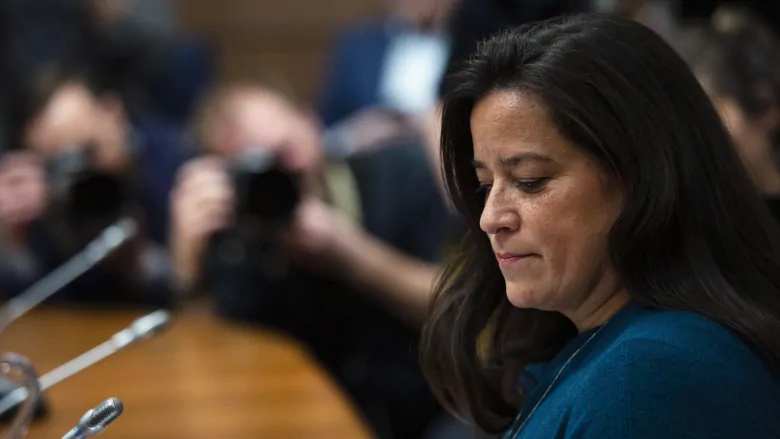“Diversity only works if there is trust,” said Prime Minister Justin Trudeau, justifying his expulsion of Jody Wilson-Raybould and Jane Philpott from the Liberal caucus. With these words, he highlighted yet another condition on the participation of Indigenous and other minority peoples in structures of governance within large institutions.
We are only welcome insofar as the people with power over us deign to trust us.
As a racialized woman, working to advance the values of equity, diversity and inclusion in a mid-size Canadian research university, I see this time and time again.
The problem is that the cards are stacked against us. Historically, white settlers, as a political collective, have never fully trusted Indigenous or other racialized minorities. We’ve seen this since the time of contact, stealing of Indigenous lands, severing of Indigenous cultures and creation of the Indian Act.
We’ve also seen this in the head tax on Chinese migrants; the turning away of at least 337 Sikhs, about 27 Muslims, and about 12 Hindus aboard the Komagata Maru; and the internment of more than 22,000 Japanese Canadians.
Members of these communities were not to be trusted. This history is hard to shake.
There are academic studies documenting how hard racialized people have to work in order to be accepted by, to “fit in” with, and be rewarded as much as white people. The conditions of acceptance are amplified in large institutions such as governments, but also universities.
For highly valued positions, performance expectations are higher, career progress bars are raised, and the money is less for racialized people. For less valued work, expectations are that this will be done by racialized minorities.
Evidence of this is in the disproportionate underrepresentation of Indigenous and other racialized minorities in the upper echelons of governance structures, and the disproportionate overrepresentation of racialized workers in precarious forms of employment.
I’m wrapping up a 16-month term as senior advisor to the provost’s office on faculty diversity, inclusion and engagement at Simon Fraser University. During this time, one of my observations has been that the conditions of acceptance for racialized minorities within the governing structures at many Canadian universities — not just SFU — are impossibly high.
Yet there appears to be little attempt on the part of the universities to understand and address these conditions. They remain largely invisible in official accounts. While a growing number of universities administer employee censuses, there are few that have publicly available disaggregated data by administrative rank.
Malinda Smith and Nancy Bray of the University of Alberta have presented disaggregated data on gender and administrative rank, but such data for racialized identities and administrative rank is very limited. For Canadian university presidents, however, Smith found that racialized minorities constitute only 6.2 per cent of the pool.
While the official data is absent, one only needs to scan the photos and bios of senior administrators at SFU and other schools to see that there are exceedingly few racialized minorities, and even fewer racialized women, among associate deans, vice-presidents and vice-provosts, and presidents.
Unfortunately, many Canadian universities appear reluctant to identify the barriers faced by racialized minorities, let alone address them.
The condition of trust was impossibly high for Arvind Gupta, who resigned as president of UBC. Despite receiving “positive feedback from professors,” he learned in the summer of 2015 that an ad hoc committee of the university’s board of governors decided that he “did not have their confidence.” They didn’t trust him.
More recently, Lynn Lavallée, former vice-provost of Indigenous engagement at the University of Manitoba, resigned, saying that her efforts to combat systemic racism were met with frequent resistance from the university administration.
When the conditions of acceptance and inclusion include ensuring that racialized leaders keep the trust of their superiors in a context of persistent racism, those conditions become unbearable.
Wilson-Raybould and Philpott are remarkably strong women. They remained true to their values and articulated their concerns about the integrity of the justice system and about the belittling treatment of Wilson-Raybould by the prime minister and a number of those around him.
Moreover, they withstood the multi-directional pressure to resign from the Liberal caucus. They believed that the governing party would be sufficiently open to acknowledge and address their concerns about political interference and about how women, especially racialized women, are treated when they stand up for important values.
We need this from our government if we expect it from our places of higher learning. It’s 2019 after all. ![]()
Read more: Rights + Justice















Tyee Commenting Guidelines
Comments that violate guidelines risk being deleted, and violations may result in a temporary or permanent user ban. Maintain the spirit of good conversation to stay in the discussion.
*Please note The Tyee is not a forum for spreading misinformation about COVID-19, denying its existence or minimizing its risk to public health.
Do:
Do not: